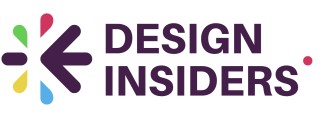Understanding the Intersection of Social Science and UX
The Convergence of Disciplines
Social science and UX research might seem like distinct fields at first glance, but they share a fundamental goal: understanding human behavior. Social scientists delve into the intricacies of human interactions, culture, and societal trends, while UX researchers focus on how users interact with products and services. This intersection is where the magic happens, offering a unique perspective that enriches user experience design.
Bridging Theory and Practice
For those holding a degree in social science, the transition to UX research can be seamless. The analytical skills honed through social science studies are invaluable in UX. Understanding complex social systems and human behavior equips researchers with the ability to delve deeply into user needs and motivations. This skill set is essential in crafting experiences that resonate with users on a personal level.
Expanding Research Horizons
Social science graduates bring a wealth of research skills to the table, particularly in qualitative research. Techniques such as ethnography, interviews, and surveys are directly applicable to UX research projects. These methods allow researchers to gather rich, detailed data that informs user-centered design decisions. As a result, products are not only functional but also deeply aligned with user expectations and experiences.
For more insights on crafting user-friendly content, explore this guide on UX writing.
Skills Transfer: From Social Science to UX Research
Harnessing Social Science Proficiencies for UX Success
Navigating the dynamic realm of user experience research requires a unique blend of skills that social science graduates are often well-equipped to provide. Their academic background in understanding human behavior, coupled with adeptness in qualitative research, can significantly benefit user researchers striving to produce user-centered design solutions. Social scientists are accustomed to unraveling complex patterns within social structures, a capability that naturally transitions into user research. Their proficiency in conducting research, extracting insights from qualitative interviews, and analyzing data sets ensures a rigorous understanding of user behaviors and preferences. These skills enhance user experience design and provide a comprehensive understanding of the product's interaction with users. Adapting to UX research methodologies means leveraging one's ability to apply these analytical techniques from social sciences into investigating user expectations and experiences. This involves utilizing qualitative research methods to gather insights and blending them with quantitative research for a holistic perspective. User interviews become a primary tool used to obtain rich, deep responses to help understand user perceptions and refine product design, thereby bridging the gap between social science theories and practical user research applications. Furthermore, the skills acquired in social science programs lay the groundwork for effective communication and presentation of findings – crucial aspects in a UX research career where conveying insights to design or product teams shapes the overall design strategy. For those considering this career path, it's equally important to master the art of UX writing, which you can explore further here. This skill complements research efforts by ensuring clear, engaging communications that resonate with both users and stakeholders. Overall, a social science degree not only paves the way for a rewarding research career but also endows aspiring researchers with the ability to create impactful user experiences, intersecting social insights with digital design challenges.Methodologies: Social Science Techniques in UX
Integrating Social Science Techniques in User Research
In the realm of user experience (UX), leveraging methodologies from social sciences can significantly enhance the quality and depth of user research. Social scientists bring a unique set of research skills that are invaluable in understanding user behavior and preferences.
Qualitative Research: A Core Component
Qualitative research methods, such as user interviews and focus groups, are central to social sciences and provide rich, detailed insights into user experiences. These techniques allow researchers to delve into the motivations and emotions of users, offering a nuanced understanding that quantitative data alone might miss. By conducting research with an emphasis on qualitative analysis, UX researchers can tailor products that resonate more deeply with users.
Quantitative Research: Data-Driven Insights
While qualitative methods offer depth, quantitative research provides breadth. Social scientists often employ surveys and statistical analysis to gather data from larger user groups. This approach helps in identifying patterns and trends, enabling researchers to make informed design decisions. The integration of both qualitative and quantitative research methods creates a comprehensive user experience research strategy.
Ethnographic Studies: Observing User Behavior
Ethnography, a staple in social science research, involves observing users in their natural environments. This method provides context to user interactions with products, revealing insights that might be overlooked in controlled settings. By understanding how users interact with a product in real-world scenarios, UX researchers can identify areas for improvement and innovation.
Data Analysis: Transforming Insights into Action
Effective data analysis is crucial for translating research findings into actionable design improvements. Social scientists are adept at analyzing complex data sets, a skill that is highly valuable in UX research projects. By employing robust data analysis techniques, researchers can derive meaningful insights that drive user-centered design.
Incorporating these social science methodologies into UX research not only enhances the research process but also leads to more effective and engaging user experiences. By understanding the intersection of social science and UX, researchers can create products that truly meet the needs of their users.
Case Studies: Successful UX Projects with Social Science Insights
Exploring Real-life Implementations
User experience research projects that incorporate social science insights have demonstrated remarkable outcomes. By effectively leveraging their skills, social scientists offer unique perspectives that enrich product designs and user interactions.- Innovative User-Centered Solutions: Projects that utilize extensive qualitative research methods stand out in their ability to yield user-centered designs. The direct interaction with users through interviews and feedback sessions often reveals key insights that would otherwise remain undiscovered.
- Data-Driven Impact: The application of relevant data science techniques helps to quantify user behaviors and preferences. This analytical approach not only aligns with empirical evidence but also guides the direction of product enhancement.
- Embracing Complex Scenarios: Social scientists excel in navigating complex scenarios where user experience intersects with cultural and societal contexts. Their ability to analyze social structures becomes particularly valuable in designing inclusive and accessible products.
Challenges and Solutions: Navigating UX with a Social Science Background
Overcoming Unique Challenges with Social Science Expertise
As social science graduates transition into user experience research roles, they often encounter distinct challenges. The breadth of social science, grounded in understanding human behavior and social systems, is profoundly beneficial in a research career, yet adapting these skills to UX can present hurdles. However, these challenges can be navigated effectively with the right approach. One significant challenge is the shift from a predominantly theoretical framework in social sciences to the practical and often fast-paced environment of user research. Researchers must apply their research skills to real-time user data and product development, requiring an agile mindset. Excelling in this environment involves honing methods such as user interviews, which draw directly on qualitative research techniques from social sciences. For those stepping into user research, structuring research projects around both users and business goals can be daunting. Despite the broad applicability of social science methodologies, aligning these with the dynamics of product design and development necessitates adaptability. Research analysts must focus on balance—leveraging their analytical skills to provide data-driven insights throughout the design process. Another challenge lies in building technical skills. While social scientists are adept in research methods, adding technical skills related to data science and quantitative research can be vital. Many companies offer training programs that guide social science graduates through the intricacies of data management and analysis necessary for comprehensive UX research. Finally, navigating the diverse roles under the UX umbrella demands clarity in one's career path. Social scientists must assess where their expertise in user research and experience design can lead to impactful work, whether it's in the development of user interfaces or in broader strategic research roles. The reward for overcoming these challenges is a career that not only enriches the user experience but also fulfills the social scientist's commitment to understanding and improving human interaction.Career Pathways: Opportunities for Social Science Graduates in UX
Exploring Diverse Career Opportunities in User Experience
With a degree in social science, there are numerous pathways for a fulfilling career in user experience research. The foundation laid through social science can open doors across various roles in the UX field. Let’s explore some pivotal roles and how they align with social science skills.
User Researcher
The role of a user researcher involves conducting both qualitative and quantitative research to understand the needs, motivations, and behaviors of users. Social science graduates are well-equipped for this job as they excel in designing effective research methodologies and conducting user interviews to gather insightful data.
Experience Research Analyst
Social scientists can seamlessly transition into the role of experience research analysts. This position typically requires a combination of data science and qualitative research skills to analyze user data and translate it into actionable insights for product improvement.
Usability & Experience Designer
As a usability designer, the task is to enhance product usability based on user-centric design principles. This role benefits greatly from a social science background, allowing professionals to devise design strategies that cater to user needs effectively.
UX Program Manager
Those with strong organizational and leadership skills may find their calling as UX program managers, overseeing research projects and ensuring that user experience design aligns with organizational goals. Social science programs often nurture such leadership qualities.
Each of these roles leverages the unique strengths of social science degrees—such as conducting thorough user research and understanding human behavior—making social science graduates valuable assets in the UX field. With time, social scientists can further refine their skills, leading to rewarding careers with competitive researcher salaries that reflect their unique expertise and contributions.













